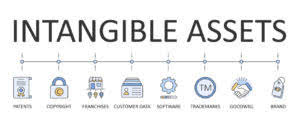
Shareholders are entitled to collect proceeds left over after a company liquidates its assets. However, creditors, bondholders, and preferred stockholders have precedence over common stockholders, who may be left with nothing after all the debts are paid. There tend to be far more common shareholders than preferred ones, because companies usually issue far more of this share type than preferred shares; some may issue no preferred shares at all. Another difference is that common shareholders have significantly more voting rights than preferred shareholders. Yet another difference is that common shareholders law firm chart of accounts may not receive any dividends, while preferred shareholders are usually guaranteed a fixed dividend amount per share.
- They may want to do this to take advantage of any potential capital gains or to diversify their investments.
- When selling shares, shareholders incur taxable capital gains or loses, just like with shares of a regular corporation.
- Private equity is often sold to funds and investors that specialize in direct investments in private companies or that engage in leveraged buyouts (LBOs) of public companies.
- Their influence in the business depends on the percentage of stock that they own out of the total share capital.
Are CEOs Stakeholders? Are They Shareholders?
Along with sharing in the overall financial success, a shareholder is also allowed to vote on certain issues that affect the company or fund in which they hold shares. Institutional shareholders are large organizations that own shares of a company’s stock. These organizations include pension funds, mutual funds, hedge funds, and insurance companies. Institutional investors have a significant influence on the stock market and can have an effect on the performance of a particular company. Treasury shares or stock (not to be confused with U.S. Treasury bills) represent stock that contribution margin the company has bought back from existing shareholders. Companies may do a repurchase when management cannot deploy all of the available equity capital in ways that might deliver the best returns.
Preferred Shareholders

A Shareholder can exercise his participation rights in the AG at the Annual General Meeting. Shareholders can attend the Annual General Meeting, either in person or by proxy, and vote on important company decisions. They receive information in advance and can ask questions or submit motions. It is different from a bond, which operates like a loan made by creditors to the company in return for periodic payments. Typically, investors will use a brokerage account to purchase stock on the exchange, which will list the purchasing price (the bid) or the selling price (the offer). The price of the stock is influenced by supply stockholders definition economics and demand factors in the market, among other variables.

What Is the Difference Between Preferred and Common Shareholders?
Unlike the owner of the company, corporate shareholders are not responsible for the company’s debt or any other financial obligations and do not manage the operations. This may be the goal of a firm’s management or directors, but it is not a legal duty. There could also be nonfinancial stakeholders that reside outside of the company and its direct operations. For example, the broader community where the company operates can also experience negative repercussions.

How Shareholder Equity Works

Stakeholders are often more invested in the long-term impacts and success of a company. A shareholder is interested in the success of a business because they want the greatest return possible on their investment. Stock prices and dividends go up when a company performs well and increases its value, which increases the value of stocks that the shareholder owns. Shareholders, also known as stockholders, are the owners of a company’s outstanding shares. This represents a residual portion of the corporation’s assets and earnings as well as a percentage of the voting power of the company.

Owning stock in a company gives shareholders the potential for capital gains and dividends. Owning equity will also give shareholders the right to vote on corporate actions and elections for the board of directors. These equity ownership benefits promote shareholders’ ongoing interest in the company. Dividends are a portion of a company’s earnings distributed to shareholders as a reward for their investment. Not all companies pay dividends; those in high-growth phases may reinvest profits instead.